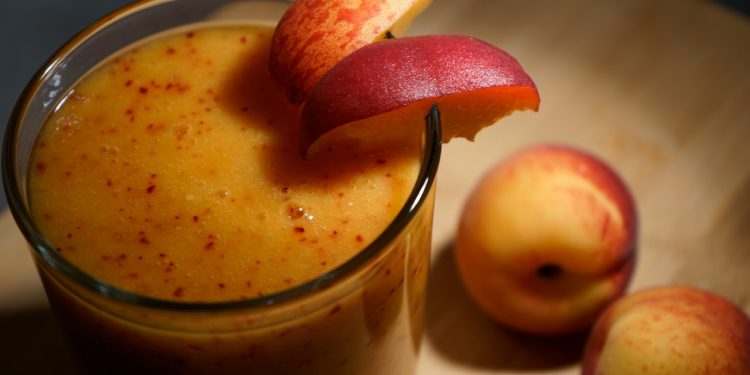Antioxidants have become a buzzword in the world of health and wellness, and for good reason. These powerful compounds play a crucial role in protecting our bodies from the damaging effects of oxidative stress, which can lead to chronic diseases and accelerate aging. Antioxidants are found in a variety of foods, particularly fruits, vegetables, nuts, and seeds. But what exactly are antioxidants, and why are they so important for our health? In this guide, we’ll explore the science behind antioxidants, their benefits, and the best sources to include in your diet.
What Are Antioxidants?
Antioxidants are molecules that protect the body’s cells from oxidative stress caused by free radicals. Free radicals are unstable molecules that are produced as a byproduct of normal metabolic processes, as well as exposure to environmental factors like pollution, radiation, and cigarette smoke. These free radicals can damage cells, proteins, and DNA, leading to a state known as oxidative stress.
Oxidative stress is linked to a number of health problems, including heart disease, cancer, diabetes, and neurodegenerative disorders like Alzheimer’s disease. Antioxidants work by neutralizing free radicals, preventing them from causing harm to the body’s cells and tissues. By maintaining a balance between free radicals and antioxidants, we can help protect our bodies from the damage that leads to chronic diseases and premature aging.
Types of Antioxidants
There are many different types of antioxidants, each with its own unique properties and health benefits. Some of the most well-known antioxidants include:
- Vitamin C: This water-soluble vitamin is one of the most powerful antioxidants, known for its ability to boost the immune system, promote skin health, and protect against oxidative damage. Vitamin C is found in citrus fruits, strawberries, bell peppers, and broccoli.
- Vitamin E: A fat-soluble antioxidant, vitamin E helps protect cell membranes from oxidative damage. It also supports immune function and skin health. Good sources of vitamin E include almonds, sunflower seeds, spinach, and avocados.
- Beta-Carotene: Beta-carotene is a type of carotenoid that the body converts into vitamin A, which is essential for eye health, immune function, and skin health. Beta-carotene is found in orange and yellow fruits and vegetables like carrots, sweet potatoes, and pumpkins.
- Flavonoids: Flavonoids are a group of plant compounds that have powerful antioxidant and anti-inflammatory properties. They are found in a wide variety of fruits, vegetables, and beverages, including berries, apples, onions, tea, and red wine.
- Selenium: Selenium is a trace mineral that plays a key role in antioxidant defense by supporting the activity of certain antioxidant enzymes. It is found in foods like Brazil nuts, seafood, and whole grains.
Health Benefits of Antioxidants
- Protecting Against Chronic Diseases
One of the primary benefits of antioxidants is their ability to protect against chronic diseases. By neutralizing free radicals, antioxidants help prevent the damage that can lead to conditions like heart disease, cancer, and diabetes. For example, antioxidants like vitamin C and vitamin E have been shown to reduce the risk of heart disease by preventing the oxidation of LDL cholesterol, which can lead to plaque buildup in the arteries.
Antioxidants also play a role in cancer prevention. Free radical damage to DNA can lead to mutations that contribute to the development of cancer. By protecting cells from this damage, antioxidants can help reduce the risk of certain types of cancer, including skin, lung, and breast cancer.
- Supporting Brain Health
Oxidative stress is believed to be a major contributor to neurodegenerative diseases like Alzheimer’s and Parkinson’s disease. Antioxidants can help protect the brain from oxidative damage, reducing the risk of cognitive decline and supporting overall brain health. Flavonoids, in particular, have been shown to improve cognitive function and protect against age-related memory loss.
Berries, such as blueberries and strawberries, are rich in flavonoids and have been found to support brain health. Studies suggest that consuming these berries regularly can improve memory and cognitive function, especially in older adults.
- Boosting the Immune System
A strong immune system is essential for protecting the body against infections and illnesses. Antioxidants like vitamin C and selenium play a key role in supporting immune function by protecting immune cells from oxidative damage and promoting the production of antibodies. Vitamin C, in particular, is known for its immune-boosting properties and is often used to help prevent or reduce the severity of colds and other respiratory infections.
Including antioxidant-rich foods in your diet can help keep your immune system functioning at its best, reducing the risk of infections and promoting overall health.
- Promoting Skin Health
Antioxidants are also important for maintaining healthy, youthful-looking skin. Free radicals can damage skin cells and contribute to the signs of aging, such as wrinkles, fine lines, and age spots. Antioxidants like vitamin C, vitamin E, and beta-carotene help protect the skin from this damage and promote collagen production, which keeps the skin firm and elastic.
Topical antioxidant treatments, such as serums and creams containing vitamin C or vitamin E, can also help protect the skin from environmental damage and improve its overall appearance. Eating a diet rich in antioxidant-containing fruits and vegetables is a natural way to support skin health from the inside out.
Best Food Sources of Antioxidants
- Berries: Berries are among the richest sources of antioxidants, particularly flavonoids. Blueberries, strawberries, raspberries, and blackberries are all excellent choices for boosting your antioxidant intake. Berries are also high in fiber and vitamins, making them a nutritious addition to any diet.
- Dark Chocolate: Dark chocolate is rich in flavonoids, which have powerful antioxidant properties. The higher the cocoa content, the more antioxidants the chocolate contains. Dark chocolate has been shown to improve heart health by reducing blood pressure and improving blood flow. Just be sure to choose dark chocolate with at least 70% cocoa and enjoy it in moderation.
- Leafy Greens: Leafy greens like spinach, kale, and Swiss chard are packed with antioxidants, including vitamins C and E, as well as beta-carotene. These greens also provide other essential nutrients like fiber, iron, and calcium. Adding leafy greens to salads, smoothies, or stir-fries is an easy way to boost your antioxidant intake.
- Nuts and Seeds: Nuts and seeds, particularly almonds, sunflower seeds, and chia seeds, are rich in vitamin E and other antioxidants. These foods also provide healthy fats, fiber, and protein, making them a great addition to a balanced diet. Snacking on a handful of nuts or adding seeds to yogurt and oatmeal are simple ways to increase your antioxidant intake.
- Tea: Green tea and black tea are both rich in flavonoids, which have antioxidant and anti-inflammatory properties. Green tea, in particular, contains catechins, a type of flavonoid that has been linked to improved heart health and weight management. Drinking a cup or two of tea each day is an easy way to enjoy the benefits of antioxidants.
- Citrus Fruits: Citrus fruits like oranges, lemons, and grapefruits are high in vitamin C, one of the most well-known antioxidants. Vitamin C helps protect cells from damage, supports the immune system, and promotes healthy skin. Including citrus fruits in your diet can provide a refreshing boost of antioxidants.
Tips for Maximizing Antioxidant Intake
- Eat a Variety of Colorful Foods: Different antioxidants provide different health benefits, and the best way to ensure you get a wide range of antioxidants is to eat a variety of colorful fruits and vegetables. The more colors you include in your diet, the more diverse your antioxidant intake will be.
- Cook Smart: Some antioxidants are more available when foods are cooked, while others are best consumed raw. For example, cooking tomatoes increases the bioavailability of lycopene, a powerful antioxidant, while vitamin C is more easily destroyed by heat. A combination of raw and cooked fruits and vegetables can help you get the most benefits from your diet.
- Choose Whole Foods: Whole foods, such as fruits, vegetables, nuts, and seeds, are the best sources of antioxidants. While supplements are available, they may not provide the same benefits as getting antioxidants from natural food sources. Whole foods contain a complex mix of nutrients, fiber, and other compounds that work together to support health.
- Limit Processed Foods: Processed foods are often low in antioxidants and high in unhealthy fats, sugars, and additives. Limiting your intake of processed foods and focusing on whole, nutrient-dense options is the best way to ensure you’re getting enough antioxidants to protect your health.















Discussion about this post